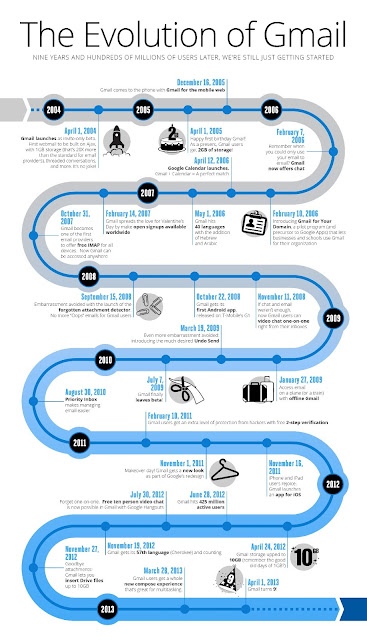معنى حرية التبادل و إن أي التبادل طالما حر لازم يكون إيجابي المجموع و
ليس صفر المجموع (أي إن كلا من المتبادلين يحسنوا من وضعهم وليس واحد فقط
على حساب الأخر). حلقة إليوم بوضح فيها الأسباب العديدة غير جشع التجار و
المنتجين اللي تؤدي إلى غلو الأسعار. الإعتقاد إن الجشع هو السبب الأوحد أو
الأساسي لغلو الأسعار فكرة مغلوطة بل هي خطر عل الإقتصاد
The Max Planck Institute for
Evolutionary Anthropology, in Leipzig, is a large, mostly glass building
shaped a bit like a banana. The institute sits at the southern edge of
the city, in a neighborhood that still very much bears the stamp of its
East German past. If you walk down the street in one direction, you come
to a block of Soviet-style apartment buildings; in the other, to a huge
hall with a golden steeple, which used to be known as the Soviet
Pavilion. (The pavilion is now empty.) In the lobby of the institute
there’s a cafeteria and an exhibit on great apes. A TV in the cafeteria
plays a live feed of the orangutans at the Leipzig Zoo.
Svante
Pääbo heads the institute’s department of evolutionary genetics. He is
tall and lanky, with a long face, a narrow chin, and bushy eyebrows,
which he often raises to emphasize some sort of irony. Pääbo’s office is
dominated by a life-size model of a Neanderthal skeleton, propped up so
that its feet dangle over the floor, and by a larger-than-life-size
portrait that his graduate students presented to him on his fiftieth
birthday. Each of the students painted a piece of the portrait, the
over-all effect of which is a surprisingly good likeness of Pääbo, but
in mismatched colors that make it look as if he had a skin disease.At any given moment, Pääbo has at least half a dozen research efforts in progress. When I visited him in May, he had one team analyzing DNA that had been obtained from a forty- or fifty-thousand-year-old finger bone found in Siberia, and another trying to extract DNA from a cache of equally ancient bones from China. A third team was slicing open the brains of mice that had been genetically engineered to produce a human protein.
In Pääbo’s mind, at least, these research efforts all hang together. They are attempts to solve a single problem in evolutionary genetics, which might, rather dizzyingly, be posed as: What made us the sort of animal that could create a transgenic mouse?
The question of what defines the human has, of course, been kicking around since Socrates, and probably a lot longer. If it has yet to be satisfactorily resolved, then this, Pääbo suspects, is because it has never been properly framed. “The challenge is to address the questions that are answerable,” he told me.
Pääbo’s most ambitious project to date, which he has assembled an international consortium to assist him with, is an attempt to sequence the entire genome of the Neanderthal. The project is about halfway complete and has already yielded some unsettling results, including the news, announced by Pääbo last year, that modern humans, before doing in the Neanderthals, must have interbred with them.
Once the Neanderthal genome is complete, scientists will be able to lay it gene by gene—indeed, base by base—against the human, and see where they diverge. At that point, Pääbo believes, an answer to the age-old question will finally be at hand. Neanderthals were very closely related to modern humans—so closely that we shared our prehistoric beds with them—and yet clearly they were not humans. Somewhere among the genetic disparities must lie the mutation or, more probably, mutations that define us. Pääbo already has a team scanning the two genomes, drawing up lists of likely candidates.
Pääbo, who is
now fifty-six, grew up in Stockholm. His mother, a chemist, was an
Estonian refugee. For a time, she worked in the laboratory of a
biochemist named Sune Bergström, who later won a Nobel Prize. Pääbo was
the product of a lab affair between the two, and, although he knew who
his father was, he wasn’t supposed to discuss it. Bergström had a wife
and another son; Pääbo’s mother, meanwhile, never married. Every
Saturday, Bergström would visit Pääbo and take him for a walk in the
woods, or somewhere else where he didn’t think he’d be recognized.
“Officially,
at home, he worked on Saturday,” Pääbo told me. “It was really crazy.
His wife knew. But they never talked about it. She never tried to call
him at work on Saturdays.” As a child, Pääbo wasn’t particularly
bothered by the whole arrangement; later, he occasionally threatened to
knock on Bergström’s door. “I would say, ‘You have to tell your son—your
other son—because he will find out sometime,’ ” he recalled. Bergström
would promise to do this, but never followed through. (As a result,
Bergström’s other son did not learn that Pääbo existed until shortly
before Bergström’s death, in 2004.) From an early age, Pääbo was interested in old things. He discovered that around fallen trees it was sometimes possible to find bits of pottery made by prehistoric Swedes, and he filled his room with potsherds. When he was a teen-ager, his mother took him to visit the Pyramids, and he was entranced. He enrolled at Uppsala University, planning to become an Egyptologist.


















